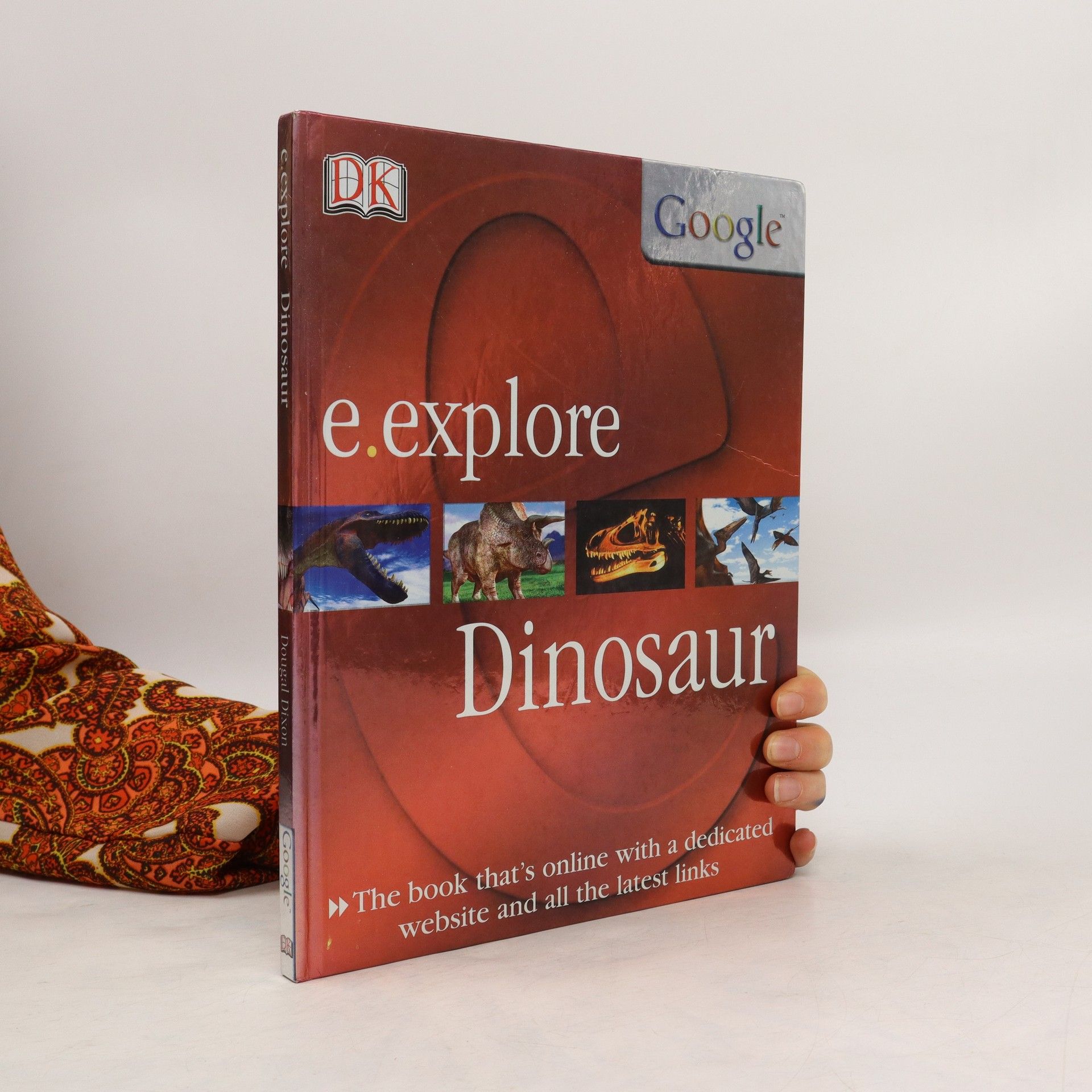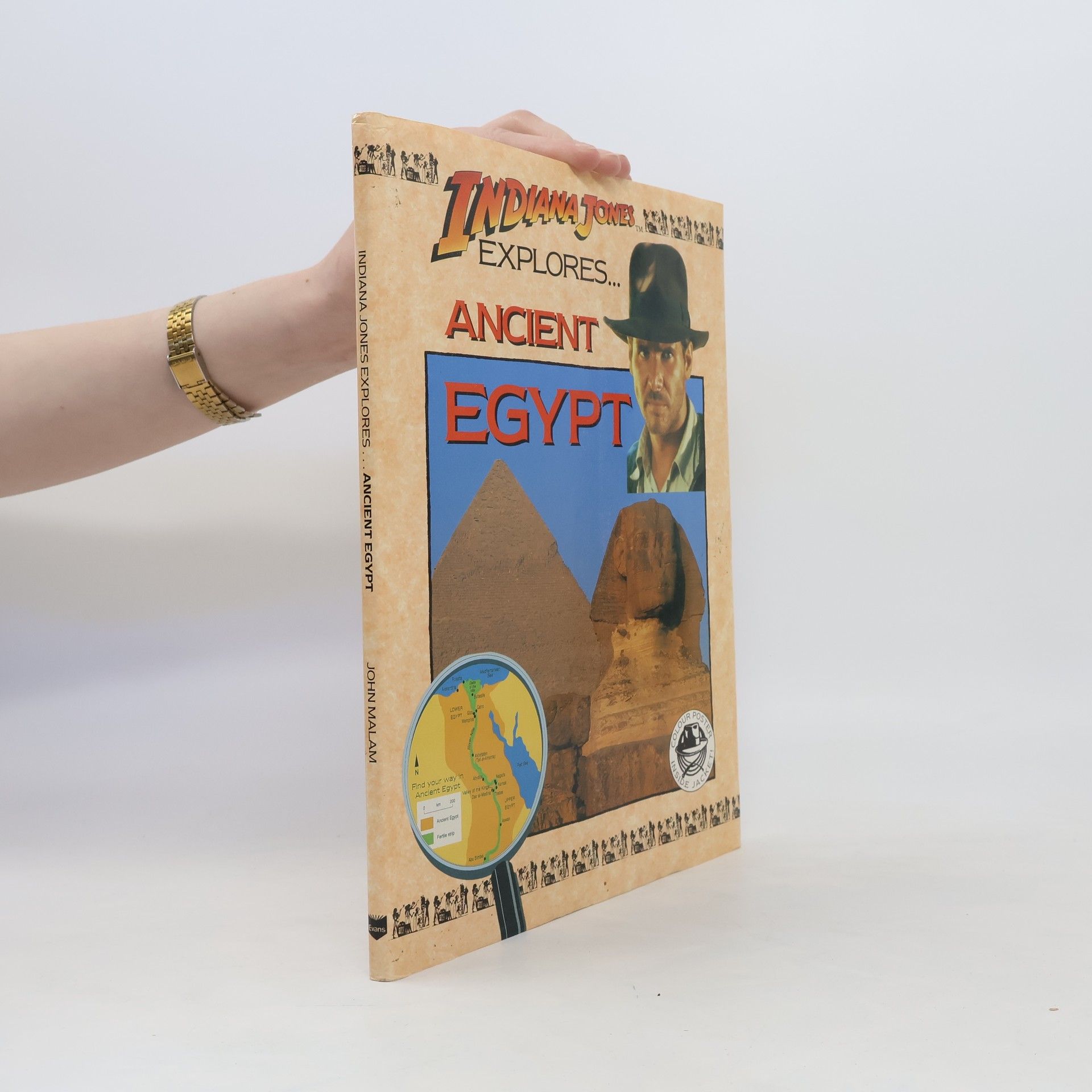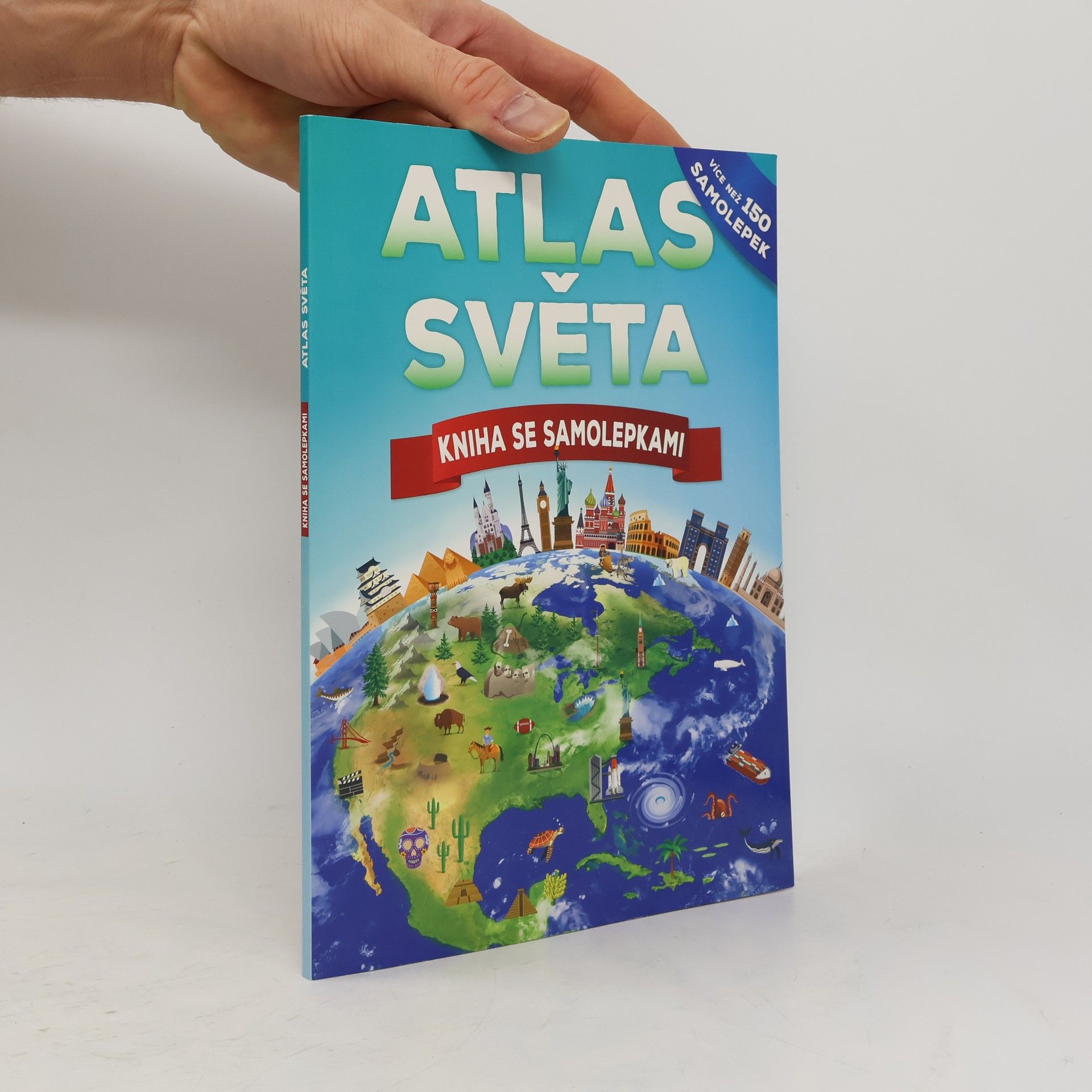Anyone can create a masterpiece with just a pencil and paper!
John Malam Book order (chronological)
John Malam is a British historian and archaeologist who specializes in writing non-fiction for children. His work delves into history and archaeology, bringing past worlds to life for young readers. Malam's approach is both informative and engaging, making complex subjects accessible to his audience. Through his books, he aims to foster a sense of curiosity and a love for history in children.






Anyone can create a masterpiece with just a pencil and paper!
Objev vzrušující svět dinosaurů s tímto atlasem se samolepkami, jež září ve tmě! Prehistorický svět byl plný úžasných tvorů, od děsivého tyranosaura přes ostnatého stegosaura až po mírného obra diplodoka. Při čtení tohoto samolepkového atlasu se dozvíš základní informace a zajímavosti o různých dinosaurech. K jednotlivým dinosaurům dolepíš správné samolepky. Pak můžeš svůj pokoj přeměnit v dechberoucí dinopark – na rozkládací plakát s obří nástěnnou mapou nalepíš samolepky dinosaurů zářící ve tmě. Odhal dinosauří svět v tom pravém světle! Obsahuje velký rozkládací plakát, také přes 300 samolepek včetně 70 dinosaurů zářících ve tmě!
Kde na světě můžu přespat v hotelu zhotoveném pouze z ledu? Kolik vody každou minutu proteče Niagarskými vodopády? K čemu sloužilo Koloseum? Kolik času trvá projet celou Transsibiřskou magistrálu? Který světadíl je největší? A jaká zvířata žijí v Austrálii? V této knize najdeš odpovědi na tyto a další rozmanité otázky. Získáš základní přehled o světadílech a jejich regionech. Dozvíš se spoustu zajímavých faktů o přírodních úkazech, zvířatech, stavbách a kulturních tradicích. Zjistíš, jak zajímavá a rozmanitá jsou místa na naší planetě. Uvnitř knihy na tebe čekají dvoustránkové mapy s vyobrazením nejzajímavějších míst pro každou oblast a k tomu více než 150 samolepek, které je potřeba umístit na správná místa v mapě. Každá kapitola obsahuje fascinující informace o jednotlivých regionech. Na konci knihy je pro tebe připravený kvíz s otázkami: zjisti, kolik si toho pamatuješ a co nového ses dozvěděl. Pojďme společně prozkoumat nejneuvěřitelnější místa, zvířata a další přírodní a kulturní zajímavosti!
Objav svet dinosaurov s atlasom so samolepkami, ktorý žiari v tme! Obsahuje rozkladací plagát plus viac ako 300 samolepiek vrátane 70 svietiacich dinosaurov.
Reading Planet: Astro - Tutankhamun: Search for the Lost Pharaoh - Mars/Stars band
- 48 pages
- 2 hours of reading
The year is 1922. English archaeologist, Howard Carter, lights a candle to look inside the tomb he has found, and sees something no one had seen for 3000 years. He has found Tutankhamun's tomb. And everywhere he looks, is the glint of gold! But who is Tutankhamun? And how did he live? Just like Carter, you'll discover the secrets of the 'boy king', who became pharaoh of Egypt when he was just eight years old. You'll also explore ideas about how Tutankhamun died and what happened to his tomb in the 3000 years before Carter discovered it. But what's that about a curse, you ask? Read on, if you dare... Tutankhamun: Search for the Lost Pharaoh is part of the Astro range from Rising Stars Reading Planet. Astro books are ideal for struggling and reluctant readers aged 7-11. Each book is dual-banded so that children can improve their fluency whilst enjoying exciting fiction and non-fiction relevant to their age. Reading Planet books have been carefully levelled to support children in becoming fluent and confident readers. Each book features useful notes and questions to support reading at home and develop comprehension skills. Interest age: 8-9 Reading age: 7-8 years
How To Draw Cartoon Animals features step-by-step guides to drawing wild and domestic animals like crocodiles, elephants, cats and dogs.
Take yourself back 3,000 years to Bronze Age Britain. A group of round wooden houses stand on stilts above a river. Suddenly there is panic - fire is spreading! Everyone escapes but the houses burn and crash into the water below, along with all of their contents. Now, fast forward to the present day -archaeologists have discovered the village and are digging up the houses, which have been preserved like perfect time capsules. What amazing secrets do they reveal about Bronze Age life? Discovery of a Bronze Age Village is part of the Reading Planet range of books for Stars (Lime) to Supernova (Red+) band. Children aged 7-11 will be inspired to love reading through the gripping stories and fascinating information books created by top authors. Reading Planet books have been carefully levelled to support children in becoming fluent and confident readers. Each book features useful notes and questions to support reading at home and develop comprehension skills. Reading age: 8-10 years
Das unverzichtbare Fußballbuch Dieses Buch ist eine wahre Goldgrube für alle Fußballfans, denn es ist ein Nachschlagewerk, auf das niemand mehr verzichten möchte, hat er es einmal in der Hand gehalten. Es ist DIE Enzyklopädie des schönsten Sports der Welt, vollgepackt mit Informationen. Zugleich wirkt das Buch auch ohne Worte: Etwa 800 Fotos erzählen die Geschichte und Gegenwart des Fußballs auf eine eigene Art und Weise. • Alle Topligen dieser Welt mit Klub- und Spielerporträts, einschließlich Bundesliga, Premier League, La Liga, Serie A, Major League Soccer u. v. m. • Alle wichtigen Meisterschaften auf Nationalmannschaftsebene, u. a. alle FIFA-Weltmeisterschaften, Olympischen Spiele und Europameisterschaften, Africa Cup etc. • Alle wichtigen Vereinswettbewerbe: Champions League, Copa Libertadores u. v. m. • Alle FIFA-Mitglieder – von Afghanistan bis Simbabwe – mit Logos und Landesfarben • Porträts der bedeutendsten Nationalmannschaften und wichtigsten Vereinsmannschaften aus Deutschland, Brasilien, Argentinien, Spanien, Italien und vielen weiteren Ländern • Statistiken und Fakten in Hülle und Fülle • Faszinierende Fotos
The Story of the First World War for Children (1914-1918)
- 72 pages
- 3 hours of reading
This fact-packed information book combines meticulous picture research and compelling text, all structured and designed to engage young readers. The Story of the First World War for Children (1914-1918) is produced in conjunction with London's Imperial War Museum.

